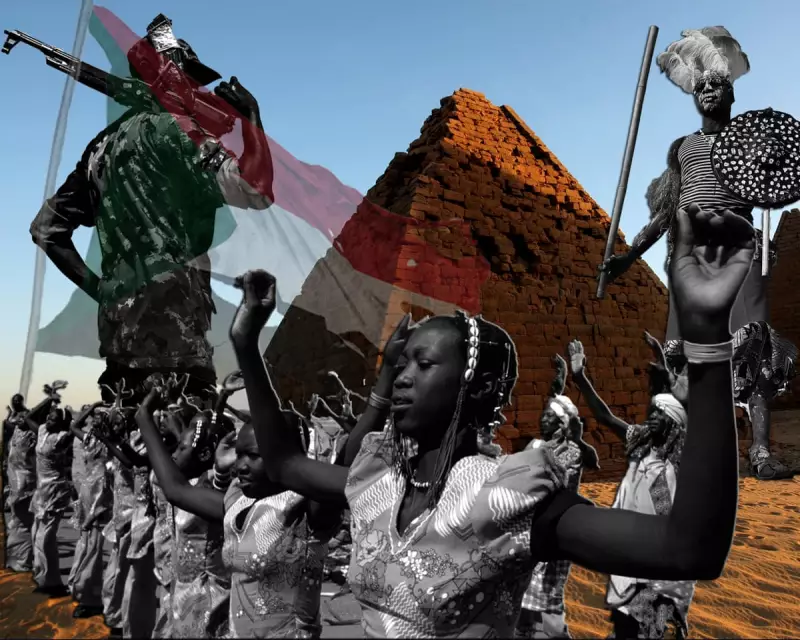
The Unfolding Catastrophe in Sudan
Across the globe, people are asking questions about Sudan. The concern stems from both personal connections to family and the nation of birth, and a genuine struggle to comprehend how this conflict has escalated to such devastating and seemingly unstoppable levels. This analysis breaks down the events in the country and explains the factors that have driven it to catastrophic proportions.
A Conflict Forged by Two Histories
To understand the current war, one must look at two distinct histories: one long, and one short. The long history is of a nation where political and economic power has perpetually been concentrated in the hands of a privileged few. Regions like Darfur have faced decades of systemic marginalisation and neglect.
For years, the region suffered from intense competition over resources and ethnic conflicts between Arab and African groups. In the early 2000s, a genocide against the non-Arab population was perpetrated by Arab militias known as the Janjaweed, operating with the direct blessing and support of the central government. The consequence was that, even while Sudan as a whole remained intact, severe localised conflicts simmered for decades, leading to the growth and empowerment of heavily armed groups.
The most tangible legacy of this period is the Rapid Support Forces (RSF), a formalised militia that evolved from these armed factions and is now at war with the official Sudanese Armed Forces (SAF).
A Revolution Sabotaged
The short history finds its roots in Sudan's popular revolution of 2019. After months of widespread protest, President Omar al-Bashir, who had ruled for nearly three decades, was finally deposed. This revolution was built on two core demands: the removal of the dictator, and the permanent ejection of the military—from whose ranks Bashir originated during his 1989 coup—from political power.
In the revolution's aftermath, it became clear that the RSF, which had previously partnered with Bashir to suppress rebellion in Darfur, had amassed significant influence. With Bashir gone, the RSF and the SAF entered a supposed transitional power-sharing agreement with civilian leaders to pave the way for democratic, civilian rule. This arrangement was short-lived. The SAF and RSF soon turned against the civilians, and then against each other. The tragic realisation was that Sudan was not big enough for two such powerful armed bodies.
The True Nature of the War
Sudan's conflict is frequently mislabelled as a civil war. However, there is nothing civilian about this struggle. Civilians did not take up arms against one another; instead, their lives and livelihoods have become the currency in a brutal power struggle between two militarised factions.
It is also often called the forgotten war, a term that obscures the reality that its duration, intensity, and the reporting on it leave little doubt—this is a conflict that the world has chosen not to care about proportionally. The war is not forgotten; it is ignored and, at times, tacitly tolerated. The UN's humanitarian response plan for Sudan remains chronically underfunded. Cuts to humanitarian aid have hit Sudan particularly hard, scaling back vital engagement efforts across Africa.
Meanwhile, you may hear Sudan's conflict described as a proxy war, suggesting outside forces are equally behind all parties. While several international actors have been drawn in, the primary external influence is the United Arab Emirates (UAE), which has pumped substantial funds and arms into the hands of the RSF, despite publicly denying any involvement. For the UAE, securing influence in Sudan—a strategically located, gold-rich, and fertile country—would significantly expand its own political and economic power.
What this war actually represents is an existential battle. It is a fight between the old guard—the Sudanese army and the established interests it represents—and a new, emboldened militia that amassed staggering influence outside the official state apparatus and now seeks to claim ultimate power.
The Heartbreaking Human Toll
The statistics are staggering, yet they fail to capture the full depth of individual tragedy. Millions have been displaced, and hundreds of thousands are estimated to have been killed. Reports of sexual violence, humanitarian catastrophe, and widespread hunger are rampant.
The personal losses resonate deeply. Homes in Khartoum have been seized by the RSF, looted, and gutted, with even pipes and wires torn from the walls. Millions of elderly people are now scattered across Sudan and the wider region, facing their final days in painful, impoverished exile.
Most alarmingly, the RSF has been systematically massacring the African population in Darfur, brutally re-opening the wounds of the earlier genocide. Last month, the largest SAF stronghold in Darfur, the city of El Fasher, fell to the RSF after a year-and-a-half-long brutal siege. Reports of summary executions continue to emerge, leaving the land soaked in blood.
With the takeover of El Fasher, the RSF has consolidated its control over the west of the country, effectively dividing Sudan in two, with the remainder under SAF control. Neither side appears to have the capacity to decisively overwhelm the other, and few Western powers seem willing to intervene decisively to pressure sponsors like the UAE or apply meaningful leverage to the belligerent parties.
An Uncertain and Fragmented Future
A strange psychological feature of war is the difficulty in conceiving of a future that does not resemble the past. There remains a lingering, unrealistic hope for a magical return to normality, a homecoming where the pieces can be picked up and the country reconciled. Yet, the logical mind knows this is an unlikely scenario.
For now, there is only the hope that this cannot continue forever. There is a desperate need for the world to learn more about Sudan, to transform its war from a lamenting headline into a matter of intolerable urgency that demands a concerted global response.





